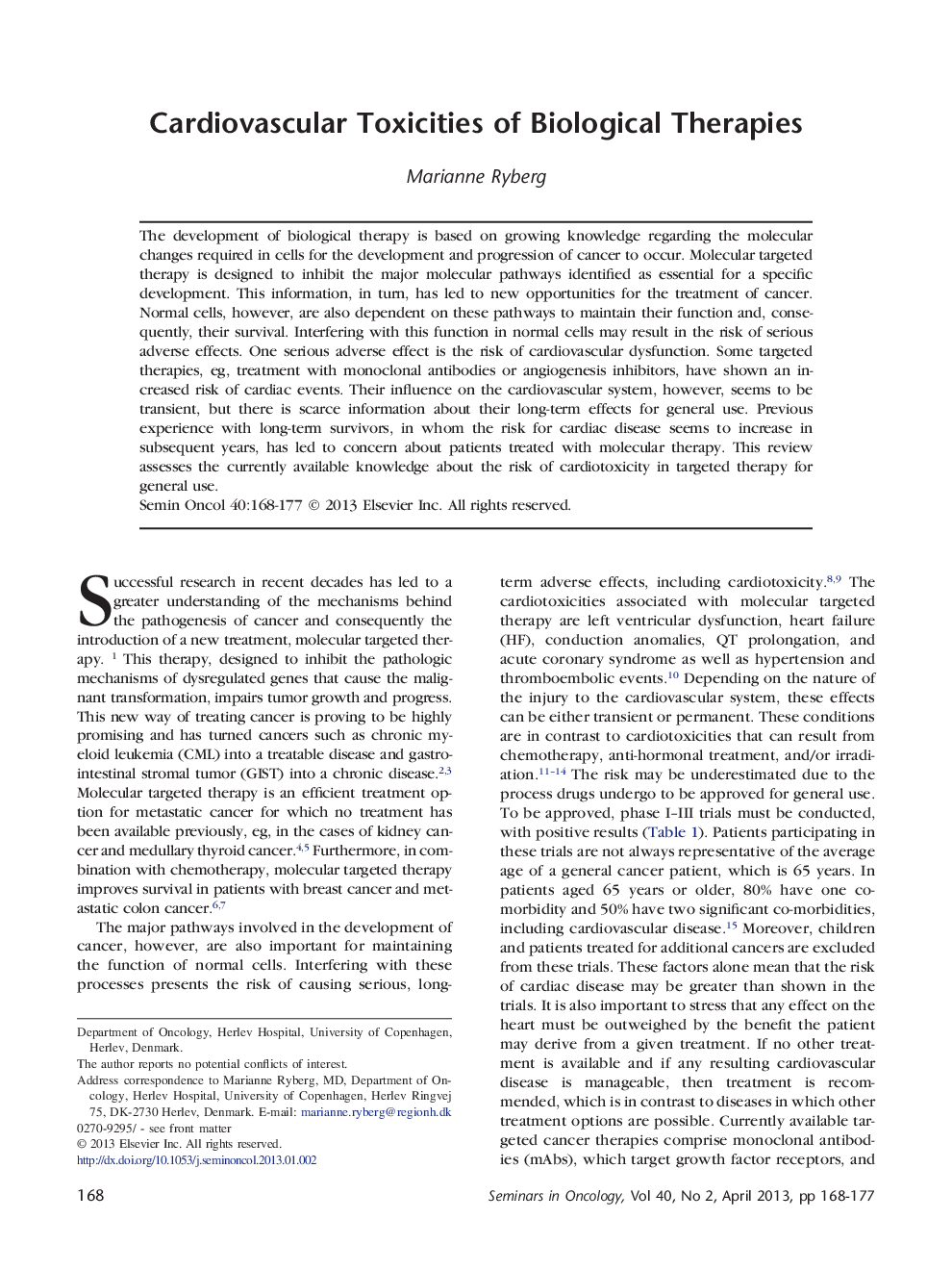| Article ID | Journal | Published Year | Pages | File Type |
|---|---|---|---|---|
| 2162032 | Seminars in Oncology | 2013 | 10 Pages |
Abstract
The development of biological therapy is based on growing knowledge regarding the molecular changes required in cells for the development and progression of cancer to occur. Molecular targeted therapy is designed to inhibit the major molecular pathways identified as essential for a specific development. This information, in turn, has led to new opportunities for the treatment of cancer. Normal cells, however, are also dependent on these pathways to maintain their function and, consequently, their survival. Interfering with this function in normal cells may result in the risk of serious adverse effects. One serious adverse effect is the risk of cardiovascular dysfunction. Some targeted therapies, eg, treatment with monoclonal antibodies or angiogenesis inhibitors, have shown an increased risk of cardiac events. Their influence on the cardiovascular system, however, seems to be transient, but there is scarce information about their long-term effects for general use. Previous experience with long-term survivors, in whom the risk for cardiac disease seems to increase in subsequent years, has led to concern about patients treated with molecular therapy. This review assesses the currently available knowledge about the risk of cardiotoxicity in targeted therapy for general use.
Related Topics
Life Sciences
Biochemistry, Genetics and Molecular Biology
Cancer Research
Authors
Marianne Ryberg,
